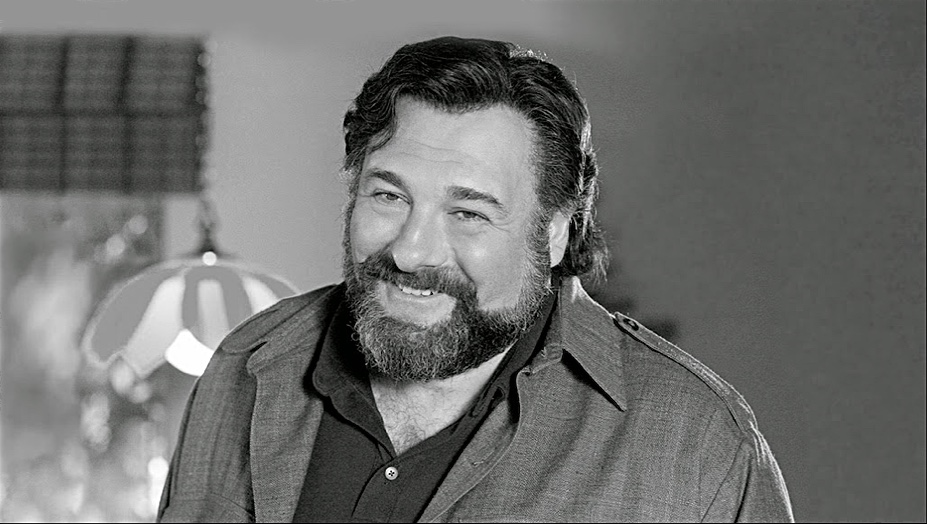James Gandolfini Young: The Early Years of a Hollywood Legend

Introduction to James Gandolfini’s Early Life
James Gandolfini Young, a renowned figure in the world of acting, was born on September 18, 1961, in Westwood, New Jersey. He grew up in Park Ridge, a suburban town that would play a significant role in shaping his identity. Gandolfini’s family lineage is rooted in Italian heritage; his father, an Italian immigrant, worked as a bricklayer, while his mother was a homemaker with a strong cultural background. This diverse familial foundation would later inform his worldview and contribute to his complex portrayal of characters on screen.
As a child, James Gandolfini exhibited a shyness that contrasted with the commanding screen presence he would later develop. Raised in a supportive household, he was encouraged to explore his interests, which eventually led him to discover his passion for acting. His formative years were marked by a range of experiences—from participating in school plays to studying drama at Rutgers University, where he honed his skills and cultivated his craft. Through these interactions and achievements, he began to navigate the path that would ultimately define his career.
Gandolfini’s upbringing in New Jersey also exposed him to a diverse range of cultural influences, which would resonate throughout his acting. The blend of traditions and the working-class ethos of his community provided rich material for his future roles. The actor’s young years were integral in shaping not just his talent, but also his understanding of nuanced characters, setting the stage for his iconic performances. His early life experiences would prove to be a wellspring from which he drew as he interpreted complex roles, particularly when he finally took on the role of Tony Soprano, which would etch his name into the annals of television history.
The Influences that Shaped James Gandolfini
James Gandolfini young was significantly shaped by a myriad of influences that not only guided his craft but also defined the man he became. One of the primary influences in his early life was his family. Born to Italian-American parents in 1961, Gandolfini grew up in a household that valued cultural heritage and personal expression. His father, a former marine and later a high school gym teacher, instilled a sense of discipline and resilience that would prove essential in his acting career. Meanwhile, his mother’s passion for music and theatre nurtured his artistic inclinations, encouraging Gandolfini to explore the realms of performance from a young age.
Moreover, the role of mentors cannot be understated in the development of young Gandolfini. Throughout his formative years in drama school, he encountered several key figures who recognized his potential and helped refine his talent. Notably, his time at Rutgers University, where he studied theatre, provided him with exposure to various influential instructors who inspired him to delve deeper into the craft of acting. These mentors did not merely teach him the technical aspects of performance; they encouraged him to embrace vulnerability and authenticity in his work, traits that would later become hallmarks of his celebrated performances.
Personal experiences also played a pivotal role in shaping Gandolfini’s perspectives. His stint working in various roles before achieving fame—such as waiter and bartender—allowed him to observe a diverse range of human emotions and experiences. These interactions enriched his ability to embody complex characters on screen. Moreover, the challenges and tribulations he faced during his young adulthood provided him with the emotional depth required to portray multifaceted roles. The combined effects of family, mentorship, and personal experiences forged the path for James Gandolfini young, ultimately leading him to leave an indelible mark on Hollywood as a legendary actor.
Education and Early Acting Experiences
James Gandolfini’s young years were shaped significantly by his educational background, particularly during his tenure at Rutgers University. Enrolling in 1979, Gandolfini pursued a degree in Communications. It was at Rutgers that he began to cultivate his passion for acting, a field he had not initially considered as a viable career option. The education he received would prove foundational, allowing him to develop skills that would become integral to his performances.
While at Rutgers, Gandolfini became involved in various theatrical productions, sharing the stage with peers and performing in community theater. His early experiences in these performances allowed him to explore different aspects of acting, from comedic roles to dramatic portrayals. These experiences were crucial in helping him hone his craft, providing a platform where he could express his emotions and connect with audiences. His performances resonated with those around him, revealing an innate talent that would later capture the attention of Hollywood.
During his college years, Gandolfini participated in plays such as “A Midsummer Night’s Dream” and other productions that spurred his interest in more serious roles. It was during this period that he began to understand the depth of storytelling and the power of characters, ultimately igniting his passion to pursue a professional acting career. Following his graduation, Gandolfini ventured into off-Broadway productions and struggled with finding his footing in the competitive world of entertainment, but the early foundation laid during his time at Rutgers would be instrumental in his later successes.
By the time he transitioned to screen acting, the skills and experiences he had garnered during his formative educational years positioned him remarkably well, setting the stage for a legacy that would firmly establish him as one of Hollywood’s most beloved actors.
Breakthrough Roles in Television and Theater
James Gandolfini, a name that resonates with power and depth in the world of acting, began his career with notable roles in television and theater that set the foundation for his future success. Before he became a household name through his iconic portrayal of Tony Soprano in ‘The Sopranos,’ Gandolfini showcased his talent in various performances that revealed his range and versatility as an actor. Born in 1961, a young Gandolfini first cut his teeth on stage, earning recognition for his compelling presence and ability to inhabit complex characters.
Among his early theater credits, one of the most significant was his performance in ‘A Streetcar Named Desire,’ where he played the role of Stanley Kowalski. This classic character allowed Gandolfini to display his raw emotional intensity, a hallmark that would later define his career. The play provided a platform for Gandolfini to demonstrate his formidable skills, leaving a lasting impression on audiences and critics alike. His work in various Off-Broadway productions further solidified his standing as a talented actor ready for wider recognition.
Transitioning to television, Gandolfini’s breakout moment came when he appeared in the critically acclaimed series ‘The Sopranos.’ Nevertheless, prior to this defining role, he made several guest appearances on shows such as ‘The Last Don’ and ‘Nurse Jackie.’ These roles, although smaller, showcased his range and hinted at the greatness that would soon follow. Through immersive performances, Gandolfini’s early television work illustrated the depth he could bring to his characters, paving the way for his evolution into one of Hollywood’s most celebrated figures. His early years, marked by significant roles in theater and television, undoubtedly laid the groundwork for his future success and enduring legacy.
The Casting of James Gandolfini in The Sopranos
James Gandolfini’s journey to becoming Tony Soprano, the iconic character in HBO’s groundbreaking series “The Sopranos,” was fraught with challenges and intricate considerations. When the casting team set out to find the perfect actor for the role of a troubled mob boss, they needed someone who could seamlessly embody both the menacing and vulnerable aspects of the character. Gandolfini’s auditions stood out remarkably, highlighting his exceptional ability to convey complexity through his performance.
Initially, casting directors were unsure whether Gandolfini, who was relatively unknown at the time, had the commanding presence required for a lead role. However, as the audition process unfolded, it became increasingly clear that he possessed a unique combination of charisma and depth. His naturally imposing figure coupled with an authentic demeanor captured the essence of a man grappling with personal demons and the pressures of leadership. This duality resonated deeply with showrunner David Chase, who envisioned a character that transcended the traditional gangster archetype.
Furthermore, Gandolfini’s background and experiences played a vital role in shaping his portrayal of Tony Soprano. Having honed his craft in theatre and independent films, he brought a rich emotional palette to the character, enriching the narrative texture of the series. The casting process also involved balancing physicality with emotional gravitas; Gandolfini’s ability to oscillate between moments of intense violence and poignant vulnerability made him a remarkable candidate for the role.
Ultimately, it was Gandolfini’s distinctive qualities, including his natural relatability and complex emotional range, that convinced producers to cast him as Tony Soprano. This pivotal decision would not only change the trajectory of Gandolfini’s career but also pave the way for the profound impact “The Sopranos” would have on the television landscape. His portrayal of a young Tony Soprano is now considered one of the defining performances in television history, highlighting the true depth and nuance that James Gandolfini brought to the character.
The Impact of The Sopranos on Gandolfini’s Career
James Gandolfini’s ascent to prominence within the entertainment industry was significantly propelled by his iconic portrayal of Tony Soprano in the groundbreaking series, The Sopranos. Premiering in 1999, the show redefined the mafia genre and allowed audiences to view the complexities of organized crime through the lens of a deeply flawed but relatable character. Gandolfini’s unique interpretation of Tony Soprano resonated with viewers, enabling the actor to cultivate a character that was both menacing and vulnerable. This portrayal not only garnered immense critical acclaim, with Gandolfini winning multiple Emmy Awards for his performance, but it also transformed his public persona, establishing him as a leading figure in Hollywood.
The cultural impact of The Sopranos extended beyond ratings and awards. It instigated a shift in television programming, setting the stage for more complex narratives and character-driven stories that challenged conventional storytelling. Gandolfini’s character inspired discussions about masculinity, mental health, and the duality of human nature, making Tony Soprano a significant figure in television history. His performance demonstrated an unparalleled depth, allowing audiences to empathize with a character who was, by all accounts, a criminal. This multifaceted representation has continued to influence how television characters are created and portrayed, paving the way for modern antiheroes.
Furthermore, the success of The Sopranos opened doors for Gandolfini, leading to a wider range of opportunities in film and television post-series. Directors and producers sought him for projects that required strong emotional performances, exemplifying the versatility that Gandolfini possessed. Whether he was tackling serious roles or exploring more comedic avenues, the acclaim he received during his tenure as Tony Soprano positioned him as a formidable talent in Hollywood. His contributions to the field remain influential, ensuring that the legacy of James Gandolfini young and the impact of his role in The Sopranos will endure in the annals of television history.

Personal Life and Challenges Faced by Young Gandolfini
James Gandolfini’s younger years were marked not only by his burgeoning career in acting but also by a series of personal challenges that shaped his life and work. Born on September 18, 1961, in Westwood, New Jersey, Gandolfini was the only child of Italian immigrant parents. Growing up in a culturally rich environment provided him with a strong sense of identity, yet it also presented certain pressures that he grappled with in his formative years.
As a young man, Gandolfini struggled with weight issues, which contributed to his insecurities and led him to develop a complex relationship with his self-image. These personal struggles were compounded by the intense scrutiny that comes with fame. As he gained recognition in the entertainment industry, the pressures associated with public life began to mount, challenging him on multiple levels. Despite these hardships, Gandolfini’s ability to channel his emotions into his performances became a hallmark of his acting style.
Romantic relationships also played a significant role in shaping Gandolfini’s personal life during his younger years. He was known to have had several relationships that influenced both his personal and professional life. His first marriage to Marcy Wudarski in 1999 produced one child, but they divorced in 2002. His subsequent marriage to Deborah Lin in 2008 saw him navigating the complexities of parenthood while maintaining a demanding career. These experiences of love and loss undoubtedly informed his portrayals of complex characters, allowing him to draw upon his own experiences.
In closing, the early years of James Gandolfini were filled with personal challenges that significantly impacted both his life and career. The struggles with his self-image, coupled with the difficulties of fame and relationships, helped to forge his unique acting style, eventually leading him to become the legendary figure we celebrate today.
Legacy of Young James Gandolfini
The legacy of young James Gandolfini is intricately tied to his early career choices, which set the foundation for a remarkable trajectory in the entertainment industry. Born in 1961 in Westwood, New Jersey, Gandolfini’s path to prominence was not immediate. He studied acting at Rutgers University, where he began honing his craft and developing a unique performance style that would later captivate audiences. His formative years in the theater would later prove to be instrumental as he transitioned into film and television.
In the 1990s, Gandolfini began to establish himself through a series of television and film roles that showcased his raw talent and versatility. His big break came in 1999 when he was cast as Tony Soprano in HBO’s iconic series, “The Sopranos.” However, prior to this defining role, Gandolfini’s performances in various smaller productions revealed his ability to inhabit complex characters. This skill would eventually resonate deeply in his portrayal of Tony, a role that continues to influence actors even today.
Young James Gandolfini’s ability to blend vulnerability with intensity allowed him to deliver performances that were both relatable and compelling. His early roles often showcased an emotional depth that would become a hallmark of his later work. This combination of talent and authenticity laid the groundwork for an enduring legacy, not just within his own body of work but also in shaping the expectations of future actors exploring the depths of human emotion.
The impact of Gandolfini’s youthful experiences and early career choices cannot be overstated. They created a robust framework for his subsequent achievements and left an indelible mark on the industry. As filmmakers and actors continue to draw inspiration from his work, the legacy of young James Gandolfini lives on, demonstrating how early artistic endeavors can influence a lifetime of storytelling.
Conclusion: Remembering James Gandolfini’s Young Years
James Gandolfini young was characterized by a series of formative experiences that significantly shaped his career as one of Hollywood’s most celebrated actors. Born in 1961 in Westwood, New Jersey, he grew up in a close-knit Italian-American family that instilled in him the values of hard work and determination. Gandolfini’s early interests in theater quickly blossomed, as he pursued acting during his time at Rutgers University, where he studied communications. This initial foray into the performing arts was not just a small step; it laid the groundwork for a remarkable career in film and television.
During his young adult years, Gandolfini faced numerous challenges that further honed his craft. His dedication to acting led him to perform in off-Broadway productions, where he developed his skills and became more comfortable with his presence on stage. Such experiences were vital as they built his confidence and expanded his range as an actor. Subsequently, he transitioned into television and film, ultimately leading to his iconic role as Tony Soprano in HBO’s groundbreaking series, “The Sopranos.” His young years were instrumental in molding him into the nuanced performer he became, resonating deeply with audiences and critics alike.
Reflecting on Gandolfini’s journey, it becomes evident that the influences and experiences of his formative years played a crucial role in his success. His commitment to the craft, along with the lessons learned in his youth, served as stepping stones that enabled him to reach the pinnacle of his profession. James Gandolfini young was marked by perseverance and passion, reminding us all of the importance of early influences in shaping one’s professional journey. As we remember Gandolfini, let us celebrate how his early experiences enriched our lives through his art.
You May Also Read This Bettermentbusiness.



